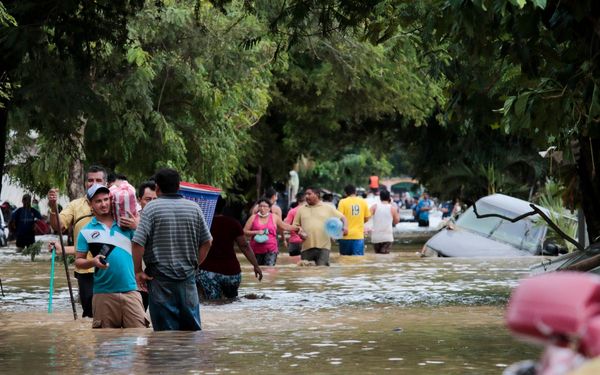More than half of all children in the North East are growing up in households without the income needed to meet all their minimum needs, according to a new report.
The minimum income standard (MIS) sets out what people think is needed in order to live with dignity in the UK today.
The North East has the highest proportion of children living in households below the MIS at 53.2 per cent, meaning more than half of all children within are growing up in households without the income needed to meet all their minimum needs.
READ MORE: North East parents use watered down evaporated milk to feed babies instead of formula as prices soar
MIS is calculated by specifying baskets of goods and services required by different types of households in order to meet these needs, and to participate in society.
You are able to find out if you earn enough for a decent standard of living by using this link.
A new report commissioned by the Joseph Rowntree Foundation that looks at the proportion of people who fall below this level shows the North East has the highest proportion of children living in households below the MIS, with 53.2 per cent below this level in 2019.
It is a substantial increase since 2009, with the proportion of children living below this level up from 43.9 per cent in 2009. No other location in the UK has seen such a large change over this period.
This means more than half of all children within the North East are growing up in households without the income needed to meet all their minimum needs, without the income required to live with dignity in the UK today.
The number of children in poverty who were in out-of-work families fell consistently across the UK between 2014-15 and 2019-20, this sustained improvement was not seen in the North East.
The number of children in out-of-work poverty fluctuated during this period, and at the same time an overall rise in in-work child poverty from 2014-15 to 2019-20 was steeper in the North East than in the UK as a whole, which appears to have continued into 2020-21.
The report states the coronavirus pandemic had an impact on the adequacy of household incomes, with an increase in the proportion of all individuals living in households living with incomes below the MIS.
It also highlights the impact the financial crash and its fallout, cuts to social security spending arising from austerity, welfare reforms, Brexit, Covid-19, political uncertainty in the UK, and rising inflation will have had on income adequacy.
Further challenges are also expected in the coming years with inflation likely to remain high into next year, and the current energy price guarantee coming to an end in April, and despite benefits and pensions rising with inflation it will not make up for real term cuts over the past year.
It adds: "Since 2013, questions about the adequacy of ages, the role of work in enabling people to live with dignity, and the interactions between our social security system and ages have been ever present.
"In these unsettled times, working to address these questions is of fundamental importance: how do we ensure that all within the UK are able to meet their minimum needs, not worrying about being able to provide a roof over their heads or food for10their family? But more than this, how do we build a society in which we are all able to participate, to thrive not just survive, and live with dignity?"
Anna Turley, chairwoman of the North East Child Poverty Commission, said: "It’s deeply concerning that more than half of all children in the North East are living in families with incomes so low they are unable to meet all of their minimum needs, which is considerably higher than anywhere else in the UK.
"The rate at which this has increased over the last decade is equally troubling, with the rise in our region being far steeper than in any other part of the country.
"But – as this new research clearly shows – this is a long-term issue, with a devastating cost of living crisis and pandemic exacerbating what were already high levels of hardship following ten years of austerity and cuts to support for children and families.
"The Government must urgently address the widening gap between what all children need for a decent life, and the reality for an increasing number of babies, children and young people growing up here in the North East.
"That means having a joined-up, ambitious plan to end child poverty in our region and the right investment in children and families. Without this, there is absolutely no prospect of the opportunities and life chances of children in the North East being meaningfully ‘levelled up’."
READ NEXT:
- MP says Government is 'out of touch' with families struggling during cost of living crisis
Ashington pensioners forced to use blankets at home instead of heating as energy costs soar
- Pensioner uses disposable barbecue in kitchen to avoid using oven to save on energy bills
- Berwick town centre like 'ghost town' as big name retailer prepares to shut
- 'People are very lonely' - The warm space hub offering friendship with fears of mental health 'tipping point'







